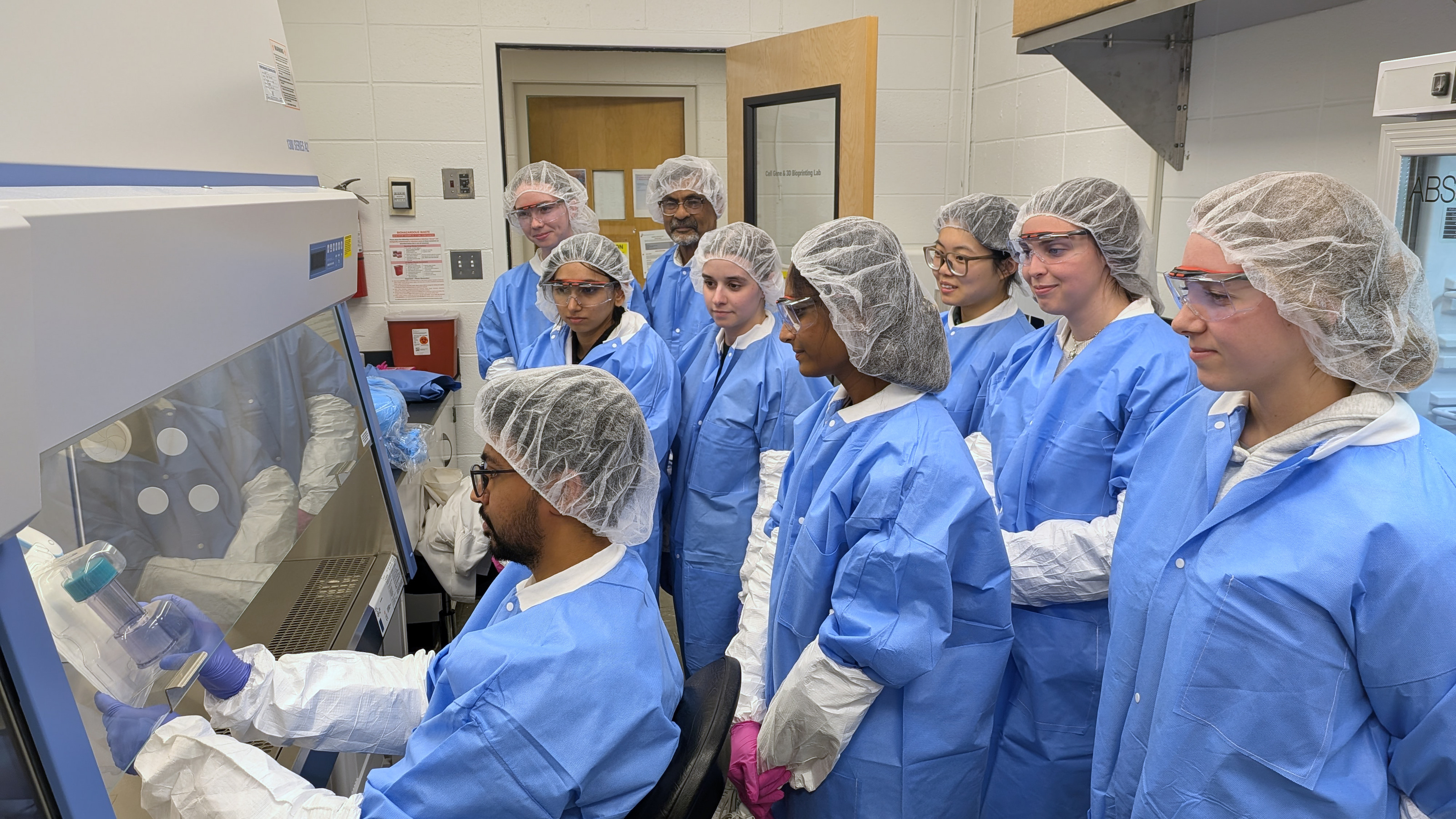OT Research Bolsters Neurodiversity in the Workplace
Assistant Professor Nicole Roberts, OTD, MOT, OTR/L, and former student, Brielle Cunningham ’22 (OTD, OTR/L) teamed up on a research partnership with Project SEARCH to pilot technologies that proved to effectively support neurodivergent individuals in the workplace.

It is estimated that 15-20% of the world’s population is neurodivergent, but unemployment rates among the neurodivergent hover around 30-40%, excluding a huge pool of talent from the workforce. Research suggests that teams with neurodivergent professionals in some roles can be 30% more productive than those without them. Inclusion and integration of neurodivergent professionals can also boost team morale. This has forced a number of high profile companies like JP Morgan Chase and Microsoft to evaluate their recruiting practices. But, you can’t recruit neurodiverse talent without also reassessing what they’ll need to thrive within a company’s culture.
With that, Assistant Professor Nicole Roberts, OTD, MOT, OTR/L, and former student Brielle Cunningham ’22 (OTD) teamed up on a research partnership with Project SEARCH to pilot technologies that proved to effectively support neurodivergent individuals in the workplace.
Through Project SEARCH, Cunningham and Roberts were connected with individuals 18-20 years old who were transitioning from their high schools into work environments. The cohort they ended up working with found their first placement at Phoenixville Hospital, where they took on small jobs like cleaning and mail delivery during their full-time shift. In order to support them in this work, a mobile app called Life Sherpa was implemented to provide how-to’s, reminders and checklists of all their daily tasks.
“We were working with five interns in this cohort, so a big focus was how we could support their job coach, who helps interns work toward job independence,” explains Cunningham. “A lot of that meant making sure the job coach didn’t have to be in multiple places at once, and Life Sherpa made that possible.”
In order to accomplish that, Cunningham worked with the interns’ job coach to identify the skills that were essential to their job success and noted which ones would prove to be the most challenging to their individual cases. From there, they created tools within Life Sherpa that interns could use as a guide to their everyday tasks.
One intern used Life Sherpa to track each task of his job using a checklist within the app that included reference photos of how his tasks were supposed to be done; another used the app to log each time he eloped from his job for a break.
In each instance, the interns utilized the system until their job tasks became natural. After repeated use, the checklist became second nature; after logging all his breaks, the eloping intern became more aware of how much time he was spending away and made an effort to stay present during his shift.
Another intern used Life Sherpa to navigate her way around the hospital. Cunningham worked with the job coach and the intern to determine most common routes throughout the hospital and take photos along the way. Photos were then put into Life Sherpa and embedded with arrows to let her know what twists and turns she could expect traveling to each destination. This feature helped reduce instances of her getting lost on her way to perform her job tasks. Eventually, she was able to familiarize herself with the hospital’s floorplan.
“It was interesting to see how different interns responded to the app,” notes Cunningham. “Some of them used it to log their moods during different times of the day, which gave us a lot of insight into how their specific tasks were affecting their mental health. We even built validations into daily tasks for one of them – it really helped her feel seen and supported.”
Overall, interns in this cohort experienced improved job performance, including increased accountability and productivity, increased independence, as well as positive job experiences.
“This type of research shows that occupational therapists aren’t only there to come up with solutions to their clients’ physical barriers,” notes Roberts. “We can also be essential in the role of supporting individuals with developmental and intellectual disabilities in accessing the same type of economic productivity that their neurotypical peers experience.”
Roberts expects to resume this research with a new cohort from Project SEARCH in summer 2023.
Learn more about Saint Joseph’s occupational therapy programs



